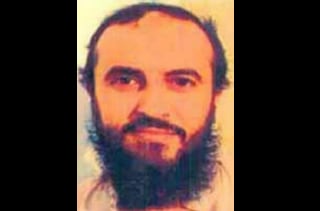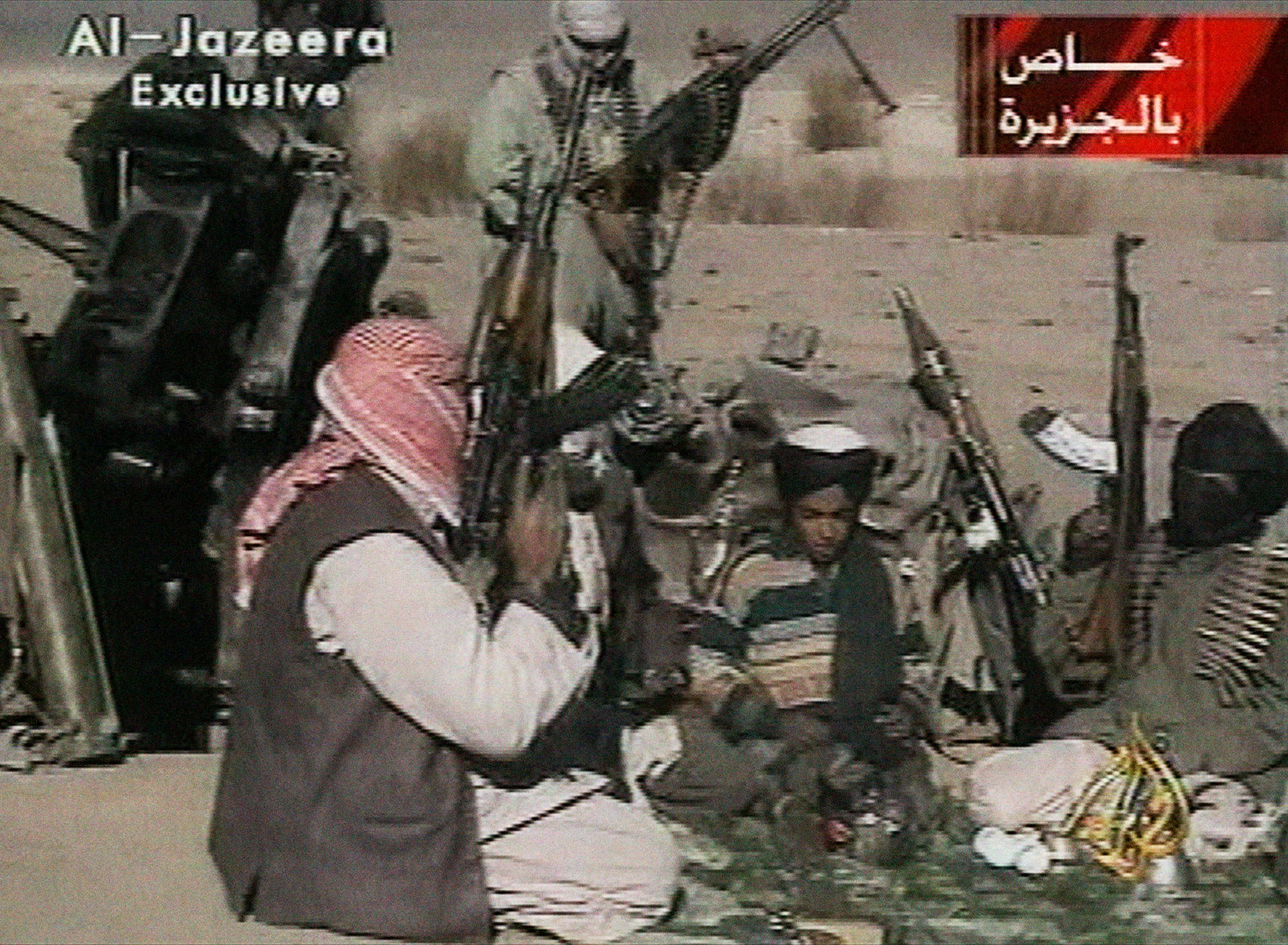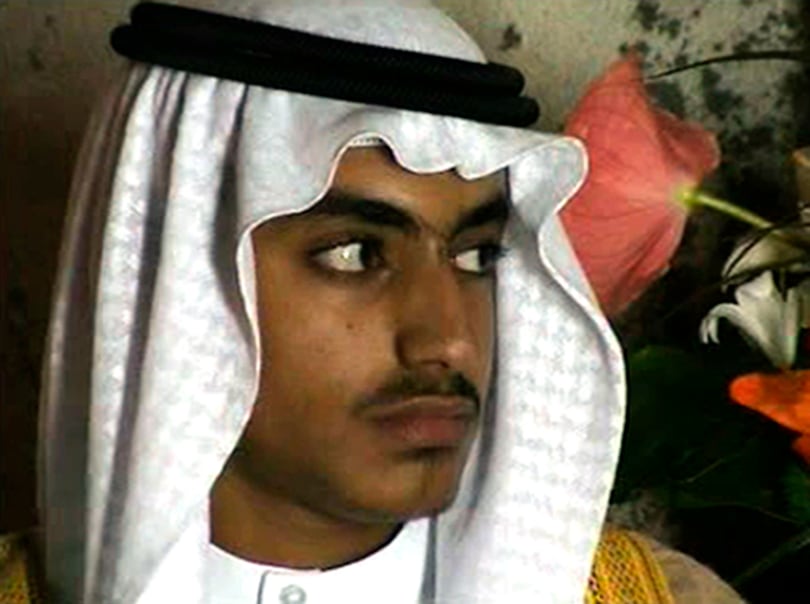DUBAI, United Arab Emirates — Years after the death of his father at the hands of a U.S. Navy SEAL raid in Pakistan, Hamza bin Laden now finds himself in the crosshairs of world powers.
In rapid succession in recent weeks, the U.S. put a bounty of up to $1 million on him; the U.N. Security Council named him to a global sanctions list, sparking a new Interpol notice for his arrest; and his home country of Saudi Arabia revealed it had revoked his citizenship.
Those measures suggest that international officials believe the now 30-year-old militant is an increasingly serious threat. He is not the head of al-Qaida but he has risen in prominence within the terror network his father founded, and the group may be grooming him to stand as a leader for a young generation of militants.
“Hamza was destined to be in his father’s footsteps,” said Ali Soufan, a former FBI agent focused on counterterrorism who investigated al-Qaida’s attack on the USS Cole. “He is poised to have a senior leadership role in al-Qaida.”
"There is probably other intelligence that indicates something's happening and that's what put this thing on the front burner," he said.
RELATED

Much remains unknown about Hamza bin Laden — particularly, the key question of where he is — but his life has mirrored al-Qaida's path, moving quietly and steadily forward, outlasting its offshoot and rival, the Islamic State group.
Hamza bin Laden's exact date of birth remains disputed, but most put it in 1989. That was a year of transition for his father, who had gained attention for his role in supplying money and arms to the mujahedeen fighting against the Soviet occupation of Afghanistan in the 1980s.
As the war wound down, Osama bin Laden would launch a new group that sought to leverage that global network for a broader jihad. They named it al-Qaida, or "the base" in Arabic.
Already, bin Laden had met and married Khairiah Saber, a child psychologist from Saudi Arabia's port city of Jiddah. She gave birth to Hamza, their only child together, as al-Qaida took its first, tentative steps toward the Sept. 11 attacks.
"This boy has been living, breathing and experiencing the al-Qaida life since age zero," said Elisabeth Kendall, a senior research fellow at Pembroke College at Oxford University who studies Hamza bin Laden.

Al-Qaida's attacks against the U.S. began in earnest in 1998 with the dual bombings of U.S. embassies in Kenya and Tanzania that killed 224 people. Its 2000 suicide attack against the USS Cole off Yemen killed at least 17 sailors.
Then came Sept. 11, 2001. The coordinated al-Qaida hijacking of four U.S. commercial flights killed nearly 3,000 people and prompted the U.S.-led invasion of Afghanistan seeking to topple al-Qaida's ally, the Taliban, and capture Osama bin Laden. The al-Qaida leader escaped, splitting from his family as he slipped into Pakistan. That was when Hamza, 12 at the time, saw his father for the last time — receiving a parting gift of prayer beads.
"It was as if we pulled out our livers and left them there," he wrote of the separation.
He and his mother followed other al-Qaida members into Pakistan. From there, they crossed the border into Iran, where other al-Qaida leaders hid them in a series of safehouses, according to experts and analysis of documents seized after the U.S. Navy SEAL team raid that killed Osama bin Laden in Abbottabad, Pakistan. Eventually, Iran put the al-Qaida members on its soil into custody, holding them reportedly on military bases or in other closed compounds.
His Iranian detention ended up keeping Hamza bin Laden and the other al-Qaida members safe as the U.S. under Bush and later President Barack Obama waged a campaign of drone strikes targeting militants across the Mideast. Hamza's half brother Saad escaped Iranian custody and made it to Pakistan, only to be immediately killed by an American strike in 2009.
During this time, Hamza married an al-Qaida supporter, a daughter of Abdullah Ahmed Abdullah, an Egyptian who the U.S. says helped plan the November 1998 embassy attacks. They had two children, Osama and Khairiah, named after his parents.
In March 2010, Hamza and others left Iranian custody. He went to Pakistan's Waziristan province, where he asked for weapons training, according to a letter to the elder bin Laden. His mother left for Abbottabad, joining her husband in his hideout
On May 2, 2011, the Navy SEAL team raided Abbottabad, killing Osama bin Laden and his son Khalid, as well as others. Saber and other wives living in the house were imprisoned. Hamza again disappeared.

In August 2015, a video emerged on jihadi websites of Ayman al-Zawahri, the current leader of al-Qaida, introducing "a lion from the den of al-Qaida" — Hamza bin Laden.
Since then, he has been featured in around a dozen al-Qaida messages, delivering speeches on everything from the war in Syria to Donald Trump's visit to Saudi Arabia on his first foreign trip as U.S. president. His frequent messages have raised speculation that the terror group may be trying to plan for the future by putting forward a fresh face.
Still, what's happening within al-Qaida remains a mystery. Hamza bin Laden hasn't been heard from since a message in March 2018, in which he threatened the rulers of Saudi Arabia.
"Will he be successful? We don't know. Will he live long to do what his father was able to do? We have no idea. We might drone him tomorrow," said Soufan, the former FBI agent. "But this is the plan. This is what they wanted to do. This is what he is destined, I believe, to do from the beginning."
Associated Press writer Maamoun Youssef in Cairo contributed to this report.





